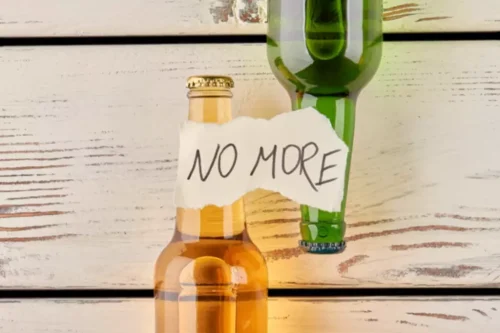While baking soda may be seen as a quick fix or attempt to cheat a drug test, it does not address the underlying addiction pass drug test with baking soda issues or provide the necessary support for long-term recovery. A drug detox program offers a comprehensive and evidence-based approach that prioritizes safety, physical and psychological well-being, and lasting recovery. A drug detox program is a comprehensive and supervised process that focuses on safely and effectively removing drugs or alcohol from an individual’s body. It is typically the first step in addiction treatment and aims to help individuals overcome their physical and psychological dependence on substances. Baking soda is not a reliable way to pass a drug test, as it may not mask the drug metabolites entirely or consistently. Some drug tests can also detect the pH level of urine and flag any abnormal results.
Baking Soda To Pass Drug Test Statistics
We Level Up is a highly esteemed rehabilitation center known for its comprehensive and holistic approach to helping individuals with addiction and co-occurring mental health issues. The center emphasizes evidence-based therapies, expert medical care, and a well-rounded perspective to ensure a successful journey toward recovery. With diverse therapeutic techniques available, including individual counseling and group therapy, We Level Up aims to address the underlying causes of addiction and promote emotional growth. Ordinary household items like sodium bicarbonate are used as a home remedy for ailments like muscle soreness, acid reflux, or tooth whitening. And, of course, baking soda is found in a significant amount of the foods we eat.
Using baking soda to pass a drug test is a method that has gained popularity among individuals looking to cleanse their system quickly. Advocates believe that consuming baking soda can help detoxify the body and eliminate traces of drugs, ultimately leading to a negative drug test result. Due to the prevalence of employees using methods to “trick” urine drug tests, it has become more difficult to fool a drug test. Employers and drug testing centers are both aware that current and prospective employees may use methods such as drinking baking soda mixed with water to try and fool a drug test. Similarly, when determining the gender of your baby, it is best to consult medical professionals and choose reliable methods such as ultrasounds and genetic testing. Fun and unconventional methods like the baking soda gender test may provide amusement, but they should not be relied upon as the sole basis for making decisions.
The Dangers of Using Baking Soda for Detox
Bicarbonate loading is popular among athletes and is taken in divided doses of about 4 teaspoons. If you consume more than this amount, you can end up suffering from severe side effects, even death. Symptoms like brain hemorrhage, stroke, and death are baking soda dangers and must be avoided by using only a mild dose. Some of these procedures are harmful and time consuming as compared to going for what works despite having to spend extra bucks for the same. Too much of something is poisonous and the high consumption of sodium in the baking soda will be causing more harm rather than solving the problem.
By eating right, exercising, staying hydrated, and resting, you’re doing everything in your power to help your body return to a THC-free state. If you’re stressing about an upcoming drug test, you might be tempted to stay up late researching or worrying. A standard multivitamin the night before the test can supply enough B vitamins to tint your urine yellow by morning. This is more of a cosmetic trick than a detox (it doesn’t affect THC levels), and be cautious with supplements.
Overcoming drug abuse can be difficult, but it will be absolutely necessary in order to get your life back on track. If you are trying to find ways to cheat your results, then it may be time to look at your habits of substance use. If this is the case, you may need professional help to get clean. It is also important to mention that getting caught for trying to cheat on a drug test can get you into a lot of trouble. When applying for a government job, submitting a false or tampered sample can be considered fraud, which is a federal offense.
By utilizing these advanced methods, expectant parents can obtain reliable information about the gender of their baby. However, it is essential to consult with healthcare professionals to understand the risks, benefits, and appropriateness of each method based on individual circumstances. Making informed decisions ensures that expectant parents have accurate information to guide them on their pregnancy journey. When it comes to predicting the gender of a baby, there are many myths and old wives’ tales that have been passed down through generations.
Ruptured stomach
For THC, one line means positive, and two lines mean negative—even if the second line is faint. These home kits show yes or no, but not the exact amount of THC. Most use a cutoff of 50 ng/mL, which is the same as many lab tests.
- In summary, the urine test procedure is designed with lots of safeguards to prevent cheating and to ensure accuracy.
- A drug detox program is a comprehensive and supervised process that focuses on safely and effectively removing drugs or alcohol from an individual’s body.
- Perhaps the most serious circumstance in which many people try to fool a drug test is when they are testing for a probation or parole officer.
- Another reference from a testing lab (Redwood Toxicology) indicates daily smokers can test positive 30 days or longer after stopping.
All calls are always completely confidential and never affect your coverage in any way. Excessive use of baking soda can also cause lower limbs to swell in some cases. With a breathalyzer test, you breathe into a device to determine the content of alcohol and other drugs in your system. Though these are most often used for alcohol, new breathalyzers can detect other drugs. If you are in a legal state and do choose to consume cannabis in the future, it’s wise to understand your employer’s current stance. And if you ever do, give yourself ample time before any possible test (e.g., if you know a test could happen, stop well in advance).
- A user may take several doses of Mega Clean but follow instructions carefully.
- However, it is crucial to separate myth from fact when evaluating the supposed benefits of urine therapy.
- With each article and resource, she hopes to save other families from experiencing the anguish of a loved one’s passing due to drinking or drugs.
- The baking soda flush will not work with blood, saliva, and hair follicle detox.
Is there any scientific evidence to support the use of baking soda for passing a drug test?
Prioritizing genetics and accuracy in gender determination ensures reliable results based on the analysis of DNA and anatomical features. It is best to rely on medical professionals and comprehensive tests for accurate gender determination. Another common myth about LSD is the claim that using it more than seven times or in large doses can lead to legal insanity. Despite urban legends and misinformation, there is no law or scientific evidence to support this claim. The effects of LSD, like any other hallucinogenic substance, are temporary and wear off over time. Passing a drug test can be a daunting task, especially if you’re an occasional user or have used drugs in the past.
It is because of these concerns that workplaces require drug tests. Some workplaces require one drug test upon initial employment, whereas others require drug testing on a regular basis. An employer may also order a drug test if they suspect that an employee is under the influence while at work.
This includes failing to stop using substances even after you have incurred some type of damage as a result of prior use. All you need is baking soda, water, and a tablespoon to measure the ingredients. Please note that the ingredient proportions and their effects depend on the user’s age, habits, metabolism, and the amount of meth consumed.
Of course, these studies are still in the early stages of development and are not conclusive. If your evaluation reveals that you need help, you won’t be under any obligation to choose our Palm Springs rehab. Our goal is to provide you with the information you need and help you understand your options.
The answer depends on a lot of factors, especially how much and how often you used cannabis before quitting. THC (tetrahydrocannabinol) is rapidly metabolized into compounds that linger in the body. The urine test specifically looks for THC-COOH (11-nor-9-carboxy-THC), the main inactive metabolite that gets excreted in urine. Next, let’s talk about how long that might take – i.e., how long THC can be detected in urine after you stop using, and what factors influence that timeline. Moreover, consuming a lot of fiber (pectin is fiber) suddenly can cause digestive issues – bloating, cramps, diarrhea. The “Certo cocktail” can be thick and hard to get down for some.











.jpg)
.jpg)
.jpg)